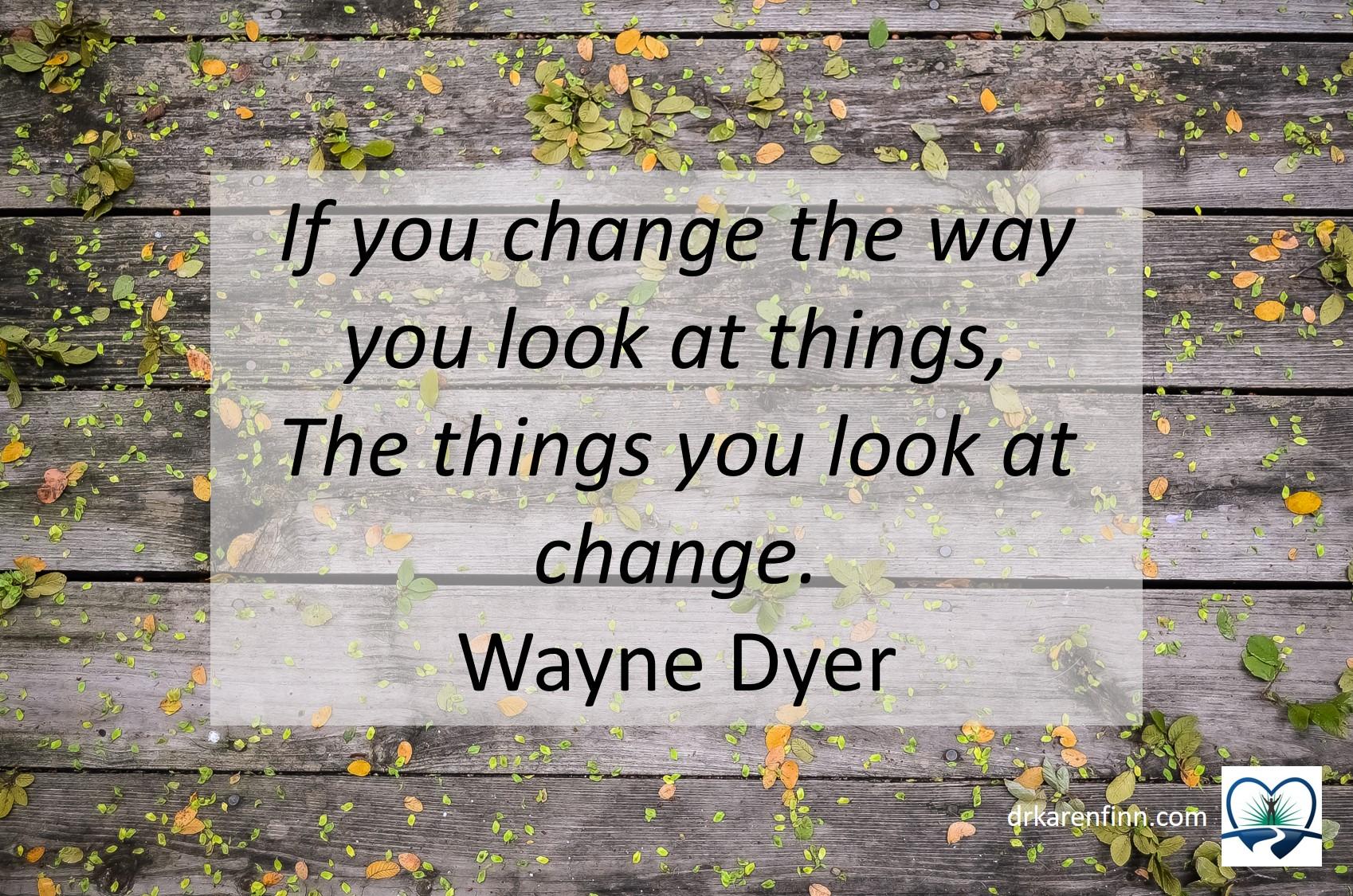Archive for May 2017
What Causes Infidelity In Marriage?
There’s healing help in knowing these four reasons why married people cheat.
Most people don’t become curious about the causes of infidelity until it’s impacted them personally.
Maybe they’ve cheated, are cheating, or are considering cheating and don’t understand how they wound up in this situation. Maybe they’ve discovered their spouse has been or is being unfaithful. Maybe they’ve found out someone close to them has had or is having an affair.
Regardless of your reason for wanting to understand what causes infidelity in marriage, gaining some clarity about the possible reasons can help you begin to heal from the repercussions of the betrayal.
In general, what causes infidelity in marriage falls into one of four categories.
- The straying spouse has unmet emotional needs.

Image credit: UnsplashAmong the many different feelings reported as being at the root for infidelity are loneliness, neglect, unappreciated, emotionally irrelevant, fear of growing older, sadness, anger, resentment, boredom, disconnection from their spouse, trapped, isolated, disrespected, insecurity and bitterness.
Of course experiencing feelings like these don’t mean it’s OK to have an affair. They simply indicate that the person experiencing them is in pain.
And when someone is in pain, they try to make it stop. Although there are many ways to alleviate emotional pain, those who choose to relieve theirs through infidelity have made a poor decision.
- They are sexually dissatisfied.

Image credit: Unsplash
Sexual dissatisfaction isn’t just about sexual frequency or a sexless marriage. (Although these are certainly valid reasons to feel sexually frustrated.)Sexual dissatisfaction can also result from unfulfilling sex. Sometimes people expect the excitement and fun they initially had with their partner as the norm and anything less is unsatisfying. Unsatisfactory sex can also result from a consistent failure to reach orgasm.
Another way in which infidelity in a marriage can be caused through sexual frustration is living apart for extended periods of time. Without regular sexual contact with each other, at least one of the spouses can easily stray in an effort to meet their sexual needs.
Sexual dissatisfaction in marriage can also result from issues involving body image and aging. The straying spouse may question their own sexual attractiveness and search for validation outside of their marriage. Then again, the straying spouse may have strayed because they have issues with the changes in their spouse’s body that come with life and aging.
Regardless of the root cause of their sexual dissatisfaction, their needs aren’t being met. So, the sexually frustrated spouse will try to have their needs met in other ways that can lead to infidelity.
- The couple has miscommunicated and/or the straying spouse has avoided communication.

Image credit: UnsplashThe types of miscommunication that lead to infidelity take many different forms.
Not talking about values will almost always be problematic for couples because infidelity means different things to different people. For example, some people believe there are emotional affairs and some don’t. This type of mismatch in values can cause unintentional infidelity.
Not talking about each spouse’s expectations of marriage is another miscommunication that can lead to infidelity. One example of this would be mismatched expectations of what an open marriage is which again can cause unintended infidelity.
Unfaithfulness can also result from avoided communication. Types of eschewed conversations include second thoughts after the wedding, jealousy over the attention given to a new baby, a cry for help, conflict avoidance, and even wanting a divorce.
In other words, when a spouse strays because of avoided communication, they’re acting out instead of talking about the issues.
- The betraying mate has psychological issues.

Image credit: Unsplash
For some people the root cause of infidelity is much more complicated because they have underlying challenges that they’ve either not yet been able to appropriately deal with or have not yet discovered.A few examples of underlying issues that can cause infidelity include childhood baggage, addictions, narcissism, intimacy disorder, and bipolar disorder.
In each of these categories, you can see that spouses cheat because their needs or their spouse’s needs aren’t being met in some way. Unmet needs are extremely hazardous to marriages – even happy ones.
Yet, by knowing these four types of reasons why married people cheat, you are beginning your journey to understanding why infidelity happened in your life.
Now you have a starting point for moving forward because you have some context for having meaningful conversations about why the things that happened happened. And it’s with these conversations that you can begin to heal from the repercussions of the betrayal.
I’m Dr. Karen Finn, a divorce coach and advisor helping people just like you who want support in dealing with the pain of infidelity and miserable marriages. You can join my newsletter list for free weekly advice. If you’re interested in taking the first step toward working with me, you can schedule an introductory private coaching session.
Looking for more information about infidelity? You’ll find what you’re looking for in Surviving Infidelity.
My Life Is Empty After Divorce. Will I Ever Feel Better?
You absolutely can feel better. You just have to start doing a few things differently.
The end of your marriage leaves huge holes in your life, in your identity and in your mind. And it’s these huge, gaping, bottomless voids that make you feel that your life is empty after divorce.
From my vantage point of having lived through the misery of a failed marriage and after that over a decade of helping others recover from divorce, I can tell you without any doubt that your life can be better than it is right now.
And the sooner you believe that your life can be better, the more quickly you’ll stop feeling “my life is empty after divorce”.
There are basically two different reasons why people get stuck in the pain of divorce. First, their lives are so different from what they were before that they have a very difficult time accepting their new normal. Second, they are still reeling from the pain of their divorce.
If you’re struggling with the differences in your life now when you compare it to then, the best thing you can do is to work on acceptance.
Acceptance doesn’t mean that you have to approve of the way things are just that they’re the way they are. It just means you know things are the way they are and that you can change them.
The situation you’re in right now is just your starting point for creating the life you want to have – a life that’s full and meaningful and definitely not empty.
These two inspirational quotes may help you find the strength and courage to move forward from feeling your life is empty now that your marriage is over.
Where there’s life, there’s hope. Publius Terentius Afer

If you change the way you look at things, the things you look at change. Wayne Dyer

If you believe your life is empty because you’re still reeling from the pain of your divorce, that’s OK.
Healing after divorce is difficult and lonely.
You can help yourself heal by getting proactive. Do everything you can think of to help yourself along. Some of what you might consider doing to help yourself heal include:
- Remember that grief is a normal part of divorce for most people and allow yourself to grieve – just don’t regularly throw yourself pity parties.
- What’s going on in the here and now is more important than what happened (or didn’t happen) in the past. So, don’t dwell on the past and focus as much as you can on today.
- You’ve lived through a lot of tough stuff with the end of your marriage and it’s easy to think that everything happened to you. But if that’s what you truly believe, then you’re only a victim. The surest way to heal and move on from feeling as if your life is empty after divorce is by shedding the victim mentality and figuring out how you can become victorious.
- Taking care of yourself and your needs can be difficult when you’re in so much misery and feeling utterly alone because of the end of your marriage, but it’s one of the best things you can do for yourself. Make sure you’re eating enough, getting enough sleep and doing a little exercise every day. Doing these little things will help you have the strength you need to heal.
Regardless of the reasons for you feeling that your life is empty after divorce, there’s one thing you’re already doing that is helping you to move forward. And that’s asking for help.
You found this article because you were searching the internet for help. Don’t let your search end with Google. Go to Amazon and find books. Ask your family and friends for help. You can even ask a helping professional for help too.
You can fill in the holes of your identity, your mind and the empty life you’re living now that you’re divorced. It’s probably not going to happen immediately and you’re going to have to work for it.
But you’ve just gotten some important information about the next steps you can take. Take the ones that make the most sense to you and change your life for the better.
You deserve it and you can do it.
I’m Dr. Karen Finn, a divorce coach and advisor helping people just like you who want support in dealing with the pain divorce and creating a post-divorce life you’re happy with. You can join my newsletter list for free weekly advice. If you’re interested in taking the first step toward working with me as your personal coach, you can schedule an introductory private coaching session.
Looking for more ideas about thriving after divorce? You’ll find what you’re looking for in Life After Divorce
How To Win Your Next Co-Parenting “Conversation”
These 5 tips will help you feel victorious!
Making the transition from one half of a married couple with kids to being a co-parent is tough. One part of you never wants to see – much less communicate – with your ex ever, Ever, EVER again!
But another part recognizes that your ex is your kids’ other parent. And this part knows that your co-parent will be part of your life F.O.R.E.V.E.R…
You’ve got (at least) these two different perspectives warring within yourself every single time you have to interact with your ex. Every contact is a battle for you. And it’s got you completely stressed out.
You flinch when you hear your phone notify you of a new text. Your blood pressure soars when you see an email from your ex in your inbox. And when you know you’re going to see your co-parent you hardly recognize yourself.
The unhappy truth is that even though you’re not married any longer, your ex is still controlling you. And because they’re controlling you, they’re winning and you’re losing. Losing is not what you need right now. You’ve already lost enough with the divorce.
So it’s time to take control back, to get strategic about your co-parenting conversations, and to start winning again!
These 5 tips will help you feel victorious when you need to interact with your ex:
- Limit conversations to only those necessary for conducting the business of co-parenting.One of the most difficult parts of communicating with your ex is the emotional toll it takes on you. And the more you communicate the more painful it is. So limit your conversations to ONLY discussing co-parenting issues.
- Decide on how you will communicate with your spouse.
There’s no way you’re going to get out of communicating with your ex because it’s a critical part of co-parenting, but you can choose how you will do it. Not every conversation needs to be through text or by phone. Decide what types of information sharing needs to happen by text, by phone call, by email, or in person.Ideally, you’ll make this determination with your ex. However, if you need to do this on your own, do it today. Then, politely and firmly inform your ex of what you’ve decided. (They might test your resolve on holding to your decision and they might honestly forget what you’ve told them, so be ready for these situations.) - Decide when you will communicate.Unless there’s an emergency, there’s no need for you to jump to respond to your co-parent right when they reach out to you. You can choose when it makes sense for you respond. For example, you might want to set up a separate co-parenting email address and only check that inbox once a day for messages from your ex.And if you’ve already implemented the first tip you’ll know when you have to respond to something immediately.
- Be business-like in your communication with your co-parent.
Choosing to interact with your ex in a business-like way and only for the purposes of co-parenting will go a long way toward helping you feel more in control of yourself and the communications.(Business-like communication means that you’re brief, informative, friendly, and f To learn more about BIFF communication, check out Bill Eddy’s book on the topic.) - Visualize how you want to behave before you interact with your ex.
You probably go over every interaction with your co-parent that you feel like you’ve lost a millions times thinking about how you could’ve or should’ve said or done things differently.And what happens when you do this? You feel like sh*t.
Instead of beating yourself up for what has already happened, start imagining yourself behaving differently the next time you have to interact with them.
You might picture yourself using the irritating way s/he looks at you as a positive trigger instead of the negative one it is now when it makes your blood boil. Instead, imagine that when they look at you that way you feel thankful you’re not still married to them. Then you can see them as just your children’s other parent who needs to be as good a parent as they’re capable of being because your children deserve that. And once you see them like that, you can easily imagine yourself interacting with them in a business-like manner because you’re doing it for your kids.
Repeat your visualizations of how you want to interact with your co-parent often. The more you imagine them the more natural it will be for you to behave that way.
There’s nothing easy about learning how to co-parent. You’ll still have “conversations” with you ex as you begin using these 5 tips. And you may still feel like you’re losing some of them.
But persevere and be patient with yourself as you develop the skills to fully adopt each of these new ways of communicating with your co-parent. The rewards for doing so are that you’ll start feeling like more victorious and in control. But even better, your kids will win big because they’ll have at least one parent who sees themselves as a co-parent and not a battle-weary ex who is also a parent.
I’m Dr. Karen Finn, a divorce coach who helps clients successfully parent after separation or divorce. If you’re interested in taking the first step toward working with me, you can schedule an introductory private coaching session.
Looking for more tips about parenting after divorce or separation? You’ll find what you’re looking for in Coparenting.
This article originally appeared on YourTango.
5 Reasons Staying Together For The Kids Is The WORST Idea Ever
Are you REALLY thinking about their happiness?
Deciding if divorce is the best solution to the troubles you’re facing in your marriage is never easy.
In fact, it’s gut-wrenching.
You’ve invested years in building a life together and the thought of starting over really isn’t appealing. It’s frightening!
But you’re not happy. You know you deserve happiness and so does your spouse.
And your kids deserve it too … especially your kids.
That’s the biggest problem: Your kids deserve happiness.
And right now, your belief is that they will never be happy if you get divorced.
Many couples decide that they can’t divorce because of their children. They believe that their kids deserve to grow up in an intact family, and that anything less will destroy them.
These couples choose to remain mired in their miserable marriages, for the sake of the kids.
Unfortunately, choosing martyrdom for the kids is a really bad decision.
If you choose to stick things out just for your kids, you can expect to face a number of problems.
Here are five reasons to reconsider staying together for the kids:
- Your kids will learn that marriage is about separateness, not togetherness. By staying together for their sake, you’ll be teaching them that marriage is about being miserable and disliking your spouse. You’ll also show them how to live separate lives and still be married.
- You and your spouse can continue to be lazy. Yes, you read that correctly – LAZY. Instead of putting in the really hard work to try to fix things or to divorce respectfully, you can both just go with the flow and accept your unhappiness as a fact of your life.You’ll be choosing mediocrity, and teaching your kids that’s what they can expect from life, too.
- You’re choosing to live in fear. Divorce means that you’ll have to live differently. Different could mean living on less income, in a different home, or having to get a job outside of the home.But one thing divorce absolutely means is that you’ll have less time with your kids, because you and their other parent will be sharing time with them.
But that doesn’t have to be the worst thing that ever happened.
The thing about living in fear is that fears are usually much, much worse than reality.
- Your kids will be unhappy because they feel your unhappiness. Children are more perceptive than we give them credit for. It’s as if we’ve forgotten how much we understood when we were their age.No matter how much you try to hide it from them, your kids will know that you’re not happy, and that your life isn’t fulfilling or fun.And that’s no way to spend the next years of your life while you wait for your children to finish high school or college (or whatever end date you have in mind).
Your kids also take cues from you about how they should feel.
So instead of being happy they’re growing up with both of you, they’ll be just as unhappy as you are.
- Your kids will model the type of marriage you and your spouse have. Unless your children do a whole lot of work on personal awareness, they’re going to grow up to be pretty much the same type of people you are. They’ll accept the same or similar types of situations, and have the same or similar outlooks on life.
This means they’ll accept the same type of marriage you do.Is this what you really want for them?
So, the question isn’t “Should we stay together for the kids?”
The real question is “Is this the life I want for my children?”
Just because staying together for the kids is a horrible idea doesn’t mean that divorce is automatically the best answer for you.
You could choose to roll up your sleeves and get to work on changing your marriage for the better.
Will it be easy? No.
Are there any guarantees that you’ll be able to work things out? No.
But the effort you put in will be a shining example to your children that sometimes it takes hard work and careful deliberation to make the best decision you can.
But that work is worth it in order to achieve happiness – for your sake, your spouse’s, and theirs.
I’m Dr. Karen Finn, a divorce and personal life coach. I help people just like you who want support in dealing with the pain of affairs and miserable marriages. You can join my newsletter list for free weekly advice. And, if you’re ready, you can take the first step toward working with me as your personal coach by scheduling a private consultation.
Looking for more information about infidelity? You’ll find what you’re looking for in Surviving Infidelity.
This article originally appeared on YourTango.
The 5 Best Tips For Surviving Infidelity Triggers
Despite the trauma, you can beat the triggers of betrayal.
Discovering that your spouse has had or is having an affair is one of the cruelest betrayals you can ever suffer.
The person you chose to trust implicitly threw your trust away as if it meant nothing to them – as if you meant nothing to them.
Whether you decide to work on repairing your marriage or to divorce, you must figure out how to heal.
Surviving infidelity isn’t easy.
Probably one of the most difficult parts is the unexpected way seemingly innocuous situations can catapult you into chaos because something about it triggers you.
In these moments, the emotions and memories of your spouse’s infidelity come flooding back and everything else fades into the background. You’re hardly aware of how you’re behaving because your sole goal is to stop the pain and fear and to simply survive.
And living your life in fear of being triggered this is no way to live your life long-term. You need to have a way for dealing with the triggers that allows you to heal and move forward.
Here are the five best tips for surviving infidelity triggers:
- Accept that triggers are normal.
Until you’ve completely come to terms with your spouse’s betrayal, you’ll have flashbacks, intrusive thoughts and triggers. Everyone who discovers their mate has been unfaithful suffers through the same traumatic responses.But just because triggers are normal, that doesn’t mean they need to become your new norm.
You can cope with them, then control them, and finally, you can overcome them.
- Choose your mindset.
Mindset is critical for surviving infidelity triggers.When your spouse is unfaithful, there’s a tremendous temptation to view yourself as a victim. And in a lot of ways you are a victim.
HOWEVER, the longer you see yourself this way, the harder it will be for you to overcome your triggers because you’ll feel helpless.
The most powerful realization you can have right now is that you can control your mind and your thoughts.
And this realization allows you to know you are strong enough and capable enough to overcome your triggers.
- Identify your triggers.
Unfortunately, this is one of those things that you can only do after the fact. So you’ll suffer through the trauma of the trigger before you can name it.But once you can start naming your triggers, you’ve found the beginning of your trek to triumph over them.
- Develop your plan.
Each time you discover one of your triggers, it’s time to get strategic. Figure out how you can either prevent yourself from being in a similar situation in the future or how you will change your response to it the next time. - Ask for help.
Surviving infidelity triggers is difficult and everyone needs help with at least one of the tips. So be brave and seek the assistance you need and
As you’ve already realized, these tips aren’t something you do once and expect to have immediate victory over your infidelity triggers.
You’ll need to revisit these tips often (maybe even multiple times a day). Eventually, you’ll discover that you’re consistently capable of surviving your infidelity triggers until you’re completely healed from the betrayal.
I’m Dr. Karen Finn, a divorce coach and advisor helping people just like you who want support in dealing with the pain of affairs and miserable marriages. You can join my newsletter list for free weekly advice. If you’re interested in taking the first step toward working with me, you can schedule an introductory private coaching session.
Looking for more information about infidelity? You’ll find what you’re looking for in Surviving Infidelity.





